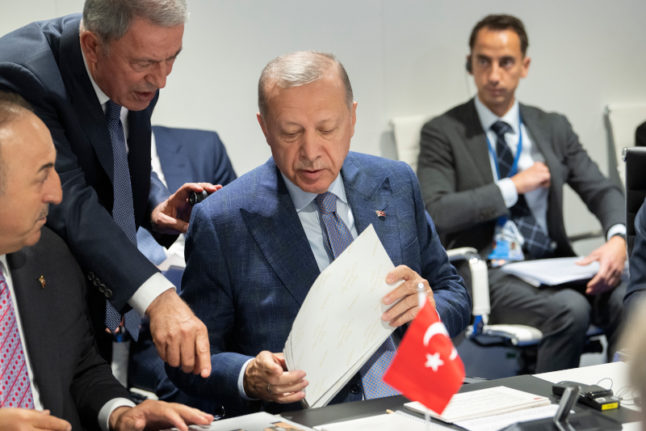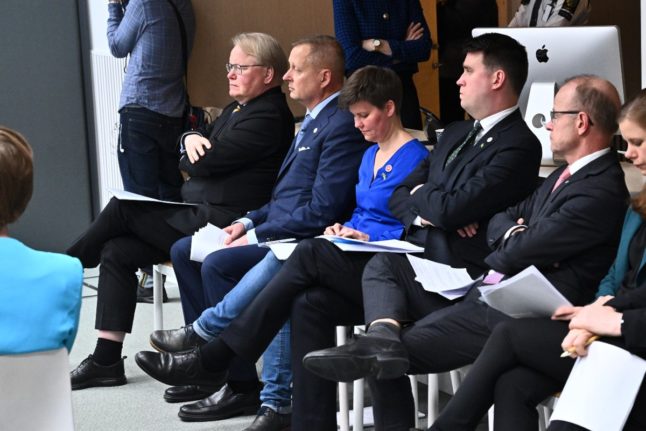“The meeting will be held on March 9th,” Turkish Foreign Minister Mevlüt Çavuşoğlu told a news conference in Ankara, alongside his Hungarian counterpart.
Bids to join Nato must be ratified by all members of the alliance, of which Turkey is a member.
But Ankara was outraged by the protests in January that included the burning of the Koran outside its embassy in Stockholm.
In turn Turkish President Recep Tayyip Erdogan warned Sweden he would not support its bid to join the Western US-led defence alliance.
Erdogan has dug in his heels heading into a close presidential election in which he is trying to energise his nationalist electoral base.
Previous two rounds of the tri-party Nato talks were attended by foreign ministry officials and focused on a specific list of Turkish demands, which include the expulsion of dozens of mostly Kurdish suspects.
Çavuşoğlu said the third planned meeting would be held in Brussels.
“It’s not possible for us to give consent (to a Nato bid) before Sweden fulfils its commitments” under a three-party protocol signed in Madrid in June, he said.
Çavuşoğlu also made it clear that Turkey looked warmly on Finland’s bid.
“We may separate Sweden and Finland’s membership process,” he said.



 Please whitelist us to continue reading.
Please whitelist us to continue reading.
Member comments